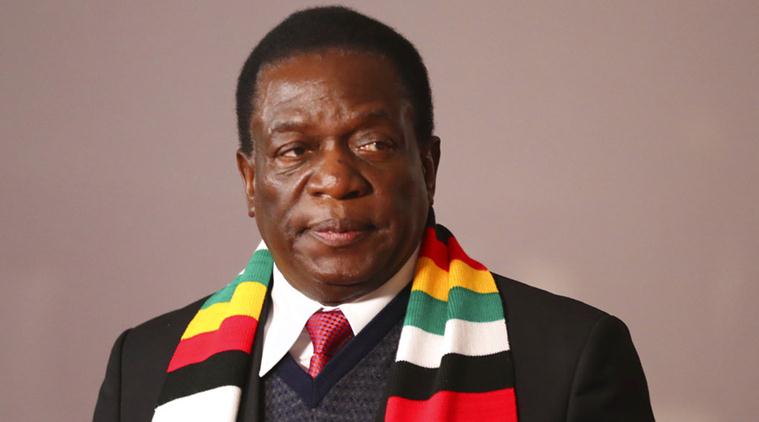Political analysts say Zimbabwe’s chances of being readmitted into the Commonwealth remain slim at a time when the Southern African nation is desperate to end its two-decade-long international isolation.
Zimbabwe was a member of the 53-member bloc comprising of Britain and its former colonies since independence in 1980 but was suspended in 2002 at the height of diplomatic tensions between Harare and London over land reforms.
Late former president Robert Mugabe withdrew the country from the organisation in 2003 after its suspension was extended.
According to the grouping’s Trade Review 2018 report Intra-Commonwealth trade and productive greenfield investment are expected to reach US$1.6 trillion by 2020.
In May 2018, six months after the dethroning of Mugabe in a coup, President Emmerson Mnangagwa’s administration in its quest to reengage with the world applied to re-join the Commonwealth.
The country went on to invite the grouping to observe the 2018 polls which were held on July 30.
For the first time since 2003 Zimbabwe was also in 2018 invited to attend the Commonwealth summit in London on an observer status ahead of envisaged re-admission.
In October last year, Foreign Affairs Minister, Sibusiso Moyo appealed for Kenya and Australia’s support in its readmission bid.
Australia is one of the Commonwealth founding member countries and its former president, John Howard, was part of a troika that suspended Zimbabwe before Harare eventually withdrew from the body the following year.
Kenya is the chair of the Commonwealth Ministerial Action Group.
Commonwealth Secretary-General Patricia Scotland has said to re-join, Zimbabwe must demonstrate that it complies with the fundamental values set out in the Commonwealth Charter, including democracy and rule of law and the protection of human rights such as freedom of expression.
She said the membership process requires an informal assessment to be undertaken followed by consultations with other Commonwealth countries.
However, the recent snubbing of Zimbabwe by the UK, a key member of the Commonwealth, at a UK-Africa investment summit last month cast a shadow on the country’s chances of being readmitted into the grouping.
“Chances of Zimbabwe being readmitted [into the Common Wealth] are almost next to none,” political analyst, Sipho Nyoni, told CITE.
“That’s because despite the fake cosmetic changes and talk of reform, Zimbabwe is still considered a pariah state which doesn’t meet up with the democratic norms usually associated with member states who form part of the Commonwealth. Of particular note as well is the fact that Zimbabwe has consistently failed to hold free and fair elections meeting up to international standards.”
He said it was regrettable that the country’s leadership, which he accused of running down the economy has never been sincere on implementing reforms.
Nyoni said the exclusion of Zimbabwe from the UK-Africa investment summit in London January was telling, especially at time when Britain was about to exit the European Union.
“The UK-Africa investment summit was very important, coming on the background of Britain leaving the EU, so what it simply means or implies is that the UK by virtue of no longer being part of the EU, is forging ahead with new trade partners and this investment summit gave direction to that,” said Nyoni.
“Whichever country was there or represented at that summit is going to be an important trade partner for the UK from an African perspective, and not to be found there or let alone invited shows the kind of disdain that the UK still has for its former colony.”
Nyoni added: “It doesn’t help that Zimbabwe’s response was to say that it’s not concerned because Britain is no longer the empire or world power that it once was.”
Another political analyst, Methuseli Moyo, said Zimbabwe’s prospects of being readmitted were slim.
“The prospects of re-admission are very slim unless the rest of the Commonwealth club members prevail on Britain not to stand in the way,” argued Moyo.
“The Commonwealth is basically controlled by the British, and Zimbabwe’s relations with her ex-colonial master are not good right now. I am sure the Zimbabwe government is prepared for any response.”
Philisani Hadebe, a political commentator, said there was no way Zimbabwe could be re-admitted anytime soon.
“If the British monarchy still values the sanctity of human life, with all the dignity that should be attached to it, there is no chance Zimbabwe can be readmitted into the Commonwealth,” observed Hadebe.
“The blatant and sustained abuses of human rights and refusal by the ZANU-PF regime to reform has been the major reason why Zimbabwe hasn’t been readmitted. It goes without saying that since there hasn’t been any movement in that direction, there won’t be any.”
Another political commentator, Rejoice Ngwenya said the chances of readmission were close to nil.
“But seriously, we have Mnangagwa who has failed all the basic entry requirements,” he said.

